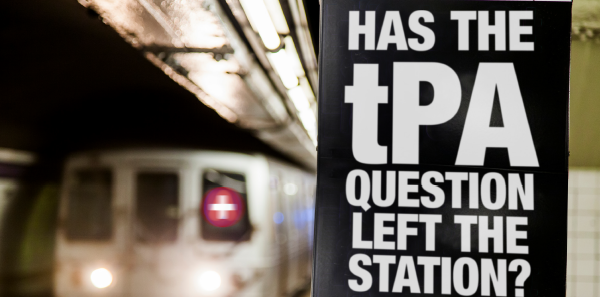
Our patients may have already lost the battle for additional evidence to help tailor optimal risks and benefits with ischemic stroke. We can, however, help ensure added protections for future innovations by taking a more active but cautious role in the process of translating external guidance to the emergency department.
Explore This Issue
ACEP Now: Vol 37 – No 06 – June 2018Dr. Radecki is assistant professor of emergency medicine at The University of Texas Medical School at Houston. He blogs at Emergency Medicine Literature of Note and can be found on Twitter @emlitofnote.
References
- Kolata G. For many strokes, there’s an effective treatment. Why aren’t some doctors offering it? The New York Times. March 26, 2018, p. D1.
- The National Institute of Neurological Disorders and Stroke rt-PA Stroke Study Group. Tissue plasminogen activator for acute ischemic stroke. N Engl J Med. 1995; 333(24):1581-1587.
- Prasad V, Vandross A, Toomey C, et al. A decade of reversal: an analysis of 146 contradicted medical practices. Mayo Clin Proc. 2013;88(8):790-798.
Pages: 1 2 3 | Single Page





3 Responses to “Is the tPA-for-Stroke Debate Over?”
June 24, 2018
Melvin JacksonBeen doing ED medicine for yes and totally embrace your article.Thanks
June 24, 2018
David Ghilarducci MDDr. Radecki laments what he perceives as hyperbole in the popular press then goes on to sarcastically call tPA the “blessed miracle drug”..a term never used in that article. Our patients deserve less tribalism in this debate.
June 24, 2018
Brian DoyleA must read for those interested in the stroke lysis debate. What a fantastic synopsis- in particular the focus on medical reversal.
But “sepsis hydra…?” That’s a new one.
Well done Ryan.